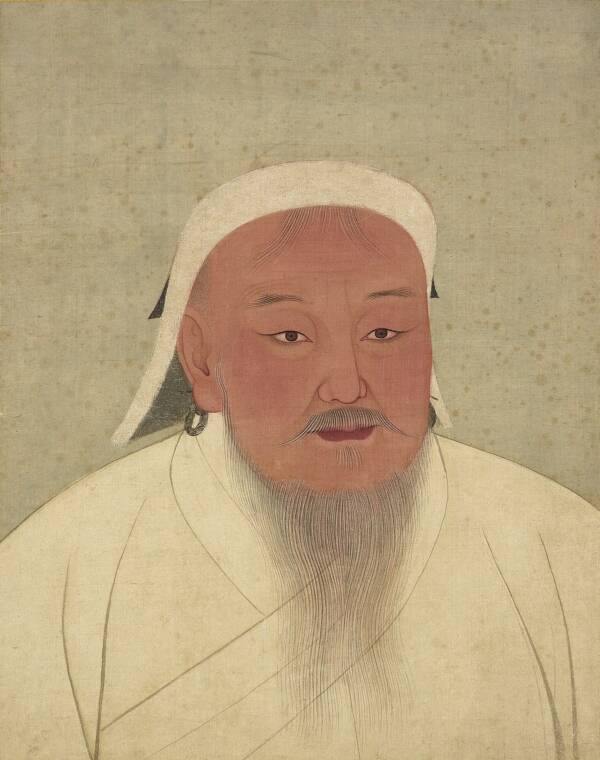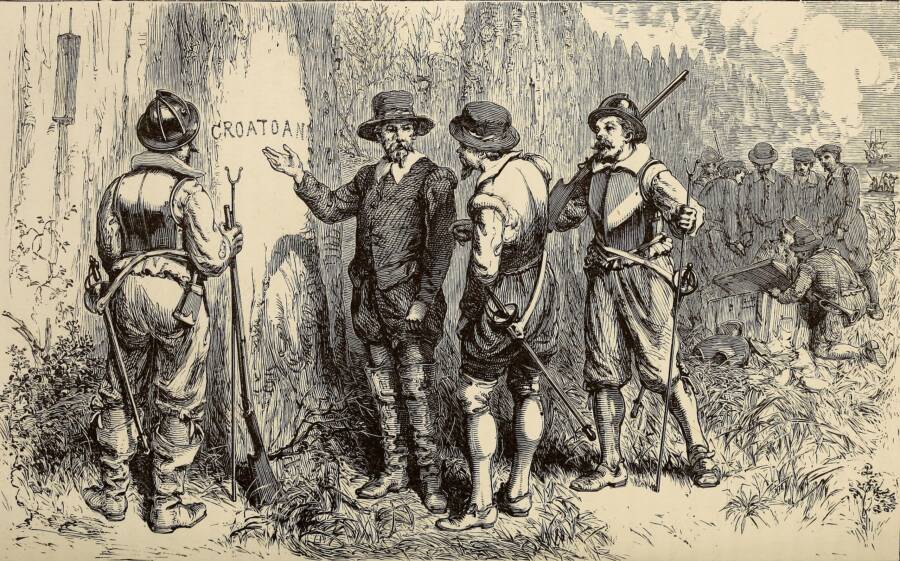What happened on this day in history: Mongol Empire founder Genghis Khan dies, the passage of the 19th amendment gives women the right to vote in America, and more historical events that occurred on August 18th.
1227: Genghis Khan Dies

Wikimedia CommonsGenghis Khan, as portrayed in a 14th-century Yuan-era album.
Mongol leader Genghis Khan dies while leading a campaign against China’s Xi Xia kingdom. His exact cause of death is unknown. Some sources say he died from injuries sustained after he fell from his horse, while others claim he was wounded by an arrow in battle and died from the resulting infection.
1590: Roanoke Colony Is Found Deserted

Wikimedia CommonsThe Lost Colony, design by William Ludwell Sheppard, engraving by William James Linton.
John White, the governor of the Roanoke colony in modern-day North Carolina, returns to Roanoke Island after a three-year trip to England to find it deserted. White, along with about 100 other colonists, had settled at Roanoke Island in 1587, but White soon had to return to England for more supplies. He was held up for years, and when he finally returned to the colony, all he found was the word “CROATOAN” — the name of an island about 50 miles away — carved into a palisade at the settlement. But strangely, none of the settlers were found at Croatoan Island.
1896: Butch Cassidy Tries To Organize A Train Robbers’ Syndicate
Wild West outlaw Butch Cassidy allegedly attempts to form a Train Robbers’ Syndicate of over 200 outlaws. Instead, many of these outlaws split into their own groups, the most infamous of which was Cassidy’s Wild Bunch. Today, the Wild Bunch is remembered as the most successful train-robbing gang in history.
1920: Women Win The Right To Vote In The United States
The 19th Amendment to the United States Constitution is ratified, legally guaranteeing women the right to vote in America. Suffragists had protested for the right for decades and the amendment was first introduced to Congress in 1878. Some states had already passed laws giving women the right to vote, but it wasn’t until Tennessee ratified the amendment on August 18, 1920, that it obtained the support of three-fourths of the states needed to make it a right across America.
1931: Yangtze River Peaks In A Catastrophic Flood
After weeks of heavy rainfall in China, the Yangtze River peaks at 53 feet above its average levels. The flood spread over a 500-square-mile area and killed about 3.7 million people, making it one of the worst natural disasters of the 20th century.
1952: Sally Horner, The “Real Life Lolita,” Dies
Sally Horner, who’s kidnapping is believed to have been part of the inspiration behind the book Lolita, dies in a car accident at 15 years old. She was kidnapped four years earlier by Frank La Salle, a convicted rapist, and had been rescued just two years before her death.



